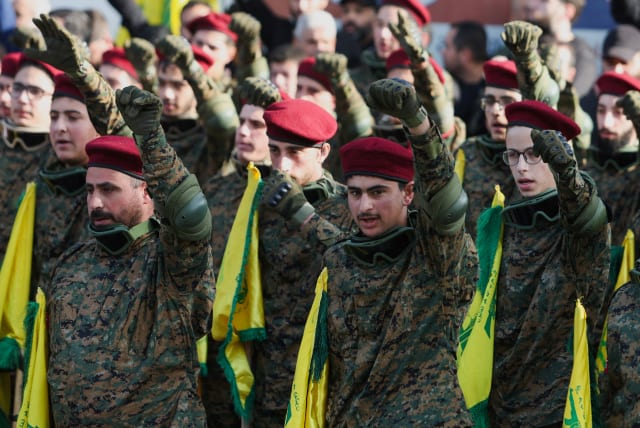Hezbollah's Radwan Force capable of infiltrating Israeli border - IDF officials

"Anyone who thinks that Hezbollah isn't training to infiltrate a squad of fighters into Israeli territory is mistaken," officers said.
While the Israeli home front awaits a response from the Iranian-led axis, potentially involving an extreme barrage of rockets, various types of missiles, and drones, officers in the Northern Command warn that the threat of a ground infiltration into communities along the northern border remains.
According to the officers, contrary to popular belief, Hezbollah's Radwan Force is still capable of launching an organized attack on the border, including efforts to penetrate a community or military post.
"Why hasn't Hezbollah done this yet? Because they have chosen not to. But anyone who thinks that Hezbollah isn't training to infiltrate a squad of fighters into Israeli territory is mistaken," officers said.
"The working assumption for everyone should be that Hezbollah is capable of infiltrating, planting a flag in a community or an IDF post on the border, and burning several buildings. For them, this could be seen as a victory. We must not forget that this is a terrorist organization. Such an action could impact the entire region and terrorize the residents of the region," they added.
According to these officers, the last month has proven that Hezbollah continues to operate observers and a forward force of the Radwan unit in the border area, aiming to prepare for continued fighting with the IDF. This activity has caused the terrorist organization significant losses, as the IDF has managed to eliminate more than 400 Hezbollah operatives over ten months of fighting.
Radwan Force infrastructure damaged
Security officials estimated in a conversation with Walla that while the IDF has indeed significantly damaged the infrastructure of the Radwan Force near the border, thereby reducing its ability to conduct a large-scale surprise infiltration into Israeli territory, Hezbollah has not abandoned its intention to respond to the assassination of Hezbollah commander Fuad Shukr.
Instead, officials are analyzing the Israeli side, seeking a military response that is severe on one hand but won't escalate the region into war on the other.
Jerusalem Post Store
`; document.getElementById("linkPremium").innerHTML = cont; var divWithLink = document.getElementById("premium-link"); if (divWithLink !== null && divWithLink !== 'undefined') { divWithLink.style.border = "solid 1px #cb0f3e"; divWithLink.style.textAlign = "center"; divWithLink.style.marginBottom = "15px"; divWithLink.style.marginTop = "15px"; divWithLink.style.width = "100%"; divWithLink.style.backgroundColor = "#122952"; divWithLink.style.color = "#ffffff"; divWithLink.style.lineHeight = "1.5"; } } (function (v, i) { });

